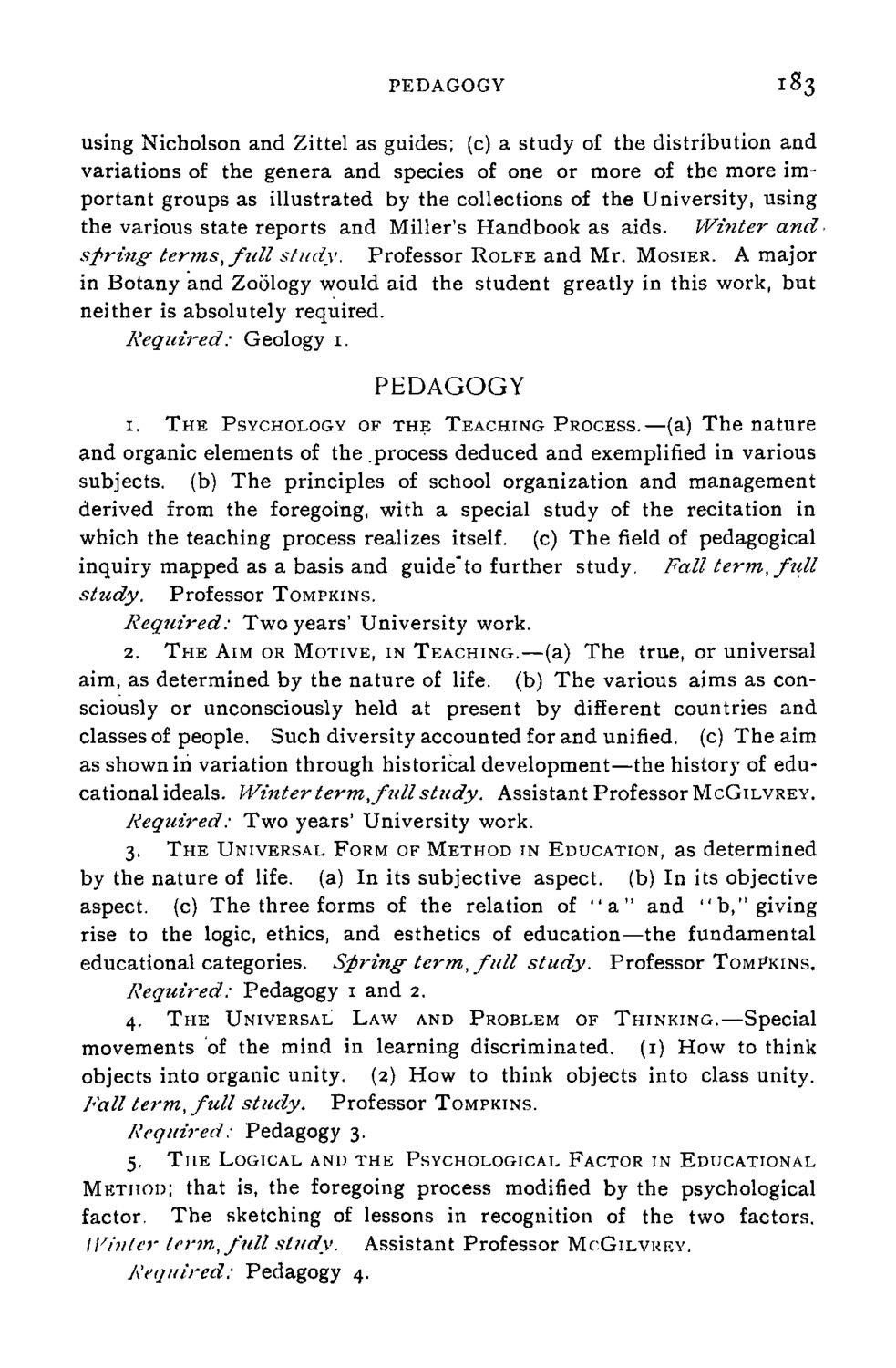Caption: Course Catalog - 1896-1897
This is a reduced-resolution page image for fast online browsing.

EXTRACTED TEXT FROM PAGE:
PEDAGOGY 183 using Nicholson and Zittel as guides; (c) a study of the distribution and variations of the genera and species of one or more of the more important groups as illustrated by the collections of the University, using the various state reports and Miller's Handbook as aids. Winter and sf ring terms, fidl study. Professor ROLFE and Mr. MOSIER. A major in Botany and Zoology would aid the student greatly in this work, but neither is absolutely required. Required: Geology 1. PEDAGOGY 1. T H E PSYCHOLOGY OF THE TEACHING PROCESS.—(a) The nature and organic elements of the process deduced and exemplified in various subjects, (b) The principles of school organization and management derived from the foregoing, with a special study of the recitation in which the teaching process realizes itself, (c) The field of pedagogical inquiry mapped as a basis and guide'to further study. Fall term, full study. Professor TOMPKINS. Required: Two years' University work. 2. T H E AIM OR MOTIVE, IN TEACHING.—(a) The true, or universal aim, as determined by the nature of life, (b) The various aims as consciously or unconsciously held at present by different countries and classes of people. Such diversity accounted for and unified, (c) The aim as shown in variation through historical development—the history of educational ideals. Winter term,full study. Assistant Professor MCGILVREY. Required: Two years' University work. 3. THE UNIVERSAL FORM OF METHOD IN EDUCATION, as determined by the nature of life, (a) In its subjective aspect, (b) In its objective aspect, (c) The three forms of the relation of " a " and " b , "giving rise to the logic, ethics, and esthetics of education—the fundamental educational categories. Sf ring term, full study. Professor TOMPKINS. Required: Pedagogy 1 and 2. 4. T H E UNIVERSAL LAW AND PROBLEM OF THINKING.—Special movements of the mind in learning discriminated. (1) How to think objects into organic unity. (2) How to think objects into class unity. Fall term, full study. Professor TOMPKINS. Required: Pedagogy 3. 5. T H E LOGICAL AND THE PSYCHOLOGICAL FACTOR IN EDUCATIONAL METHOD; that is, the foregoing process modified by the psychological factor. The sketching of lessons in recognition of the two factors. Winter term, full study. Assistant Professor MCGILVREY. Required: Pedagogy 4.
|